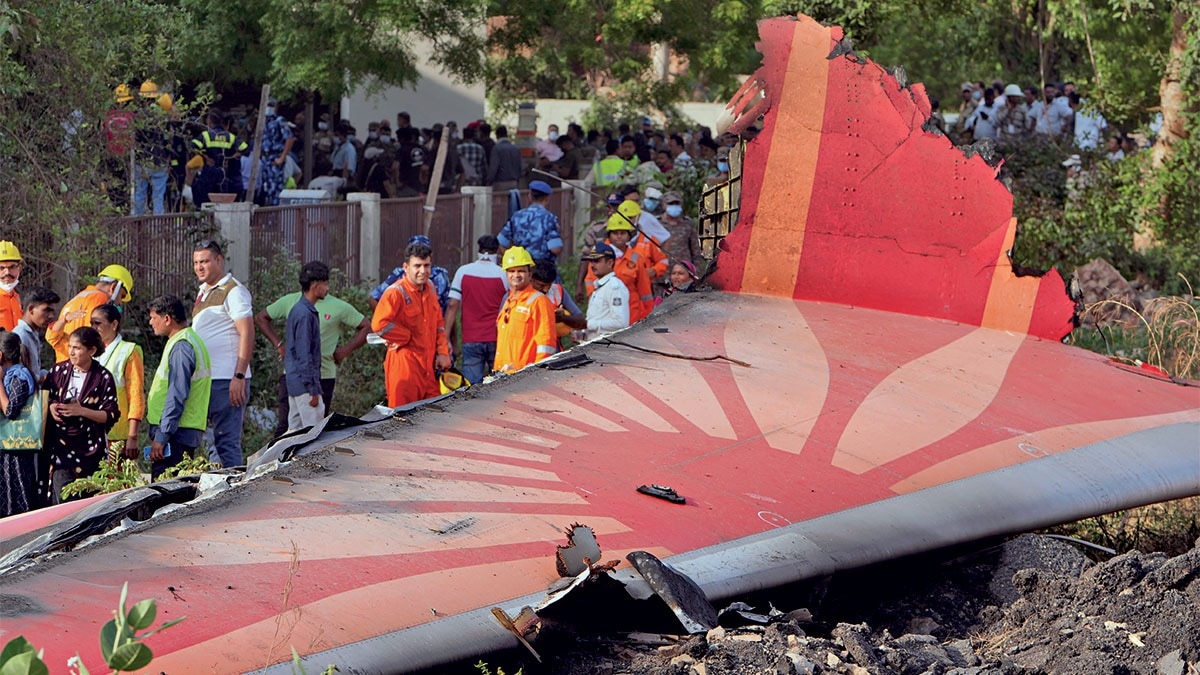Amidst reports that Aircraft Accident Investigation Bureau (AAIB) investigators are also looking at snags in the electrical and software components of the crashed Air India aircraft that could have triggered “uncommanded” action, aviation experts demand a judicial enquiry, saying every day, new faults related to aircraft crashes are being discussed.
The preliminary report by AAIB on July 12 has raised more questions. There are theories related to Auxiliary Power Unit (APU) battery fire, misinterpretation, and mechanical faults linked to the role of Thrust Control Malfunction Accommodation (TCMA), Electronic Engine Controller (EEC), and Full Authority Digital Engine Control (FADEC).
An Indian Express report mentions that the AAIB is also looking at the malfunction of ‘Stabilizer Position Transducer’ as a pilot who operated the same flight from Delhi to Ahmedabad noted in the technical log a ‘Stabilizer Position Transducer Defect’.
Amit Singh, aviation safety expert and founder of Safety Matters Foundation, says that selective disclosures are happening, and we need an open enquiry into what went wrong.
“Now, as APU battery fire theories emerge and technical faults reveal Emergency Locator Transmitter (ELT) failed to activate. A very high-temperature internal flame damaged the rear enhanced airborne flight recorders (EAFR) while there was no fire at the rear. There have been incidents of APU battery fire with B787 in 2013,” says Singh.
The Federation of Indian Pilots (FIP) on Thursday asked the government to reassess possible technical misinterpretation or mechanical faults in Air India’s Boeing 787-8 plane. FIP has called for reassessment of the role of TCMA/EEC/FADEC misinterpretation and mechanical faults, based on available FDR/CVR data and prior Boeing bulletins.
Sanjay Lazar, an aviation expert and CEO Avialaz Consultants, cites two Federal Aviation Administration (FAA) documents of December 2018 and May 2022, and both need to be seen in conjunction.
“The FAA bulletin in 2018 warned of vulnerability in fuel control switches. At the same time, another FAA Directive, which was not relied upon by the AAIB but may be relevant, was FAA BOEING ALERT BULLETIN (May 02, 2022), which was entitled “Engine Fire Control Panel – Engine fire shutoff switch”. The FAA review of this document was prompted by a report that indicated that Foreign Object Debris (FOD) may have been introduced during the maintenance or rework of certain EFSS units,” he wrote recently for US-based platform.
He says that the FOD risks included – “Uncommanded Activation of the engine fuel shut off.”
“The 2022 circular, when read in conjunction with the 2018 notice, firmly established a link between dirty engine fire panels and fuel cutoff switches. While Boeing and unnamed parts suppliers had already notified operators that received affected parts, so much has gone awry with them in recent times that it’s difficult to be certain of anything,” he added.






